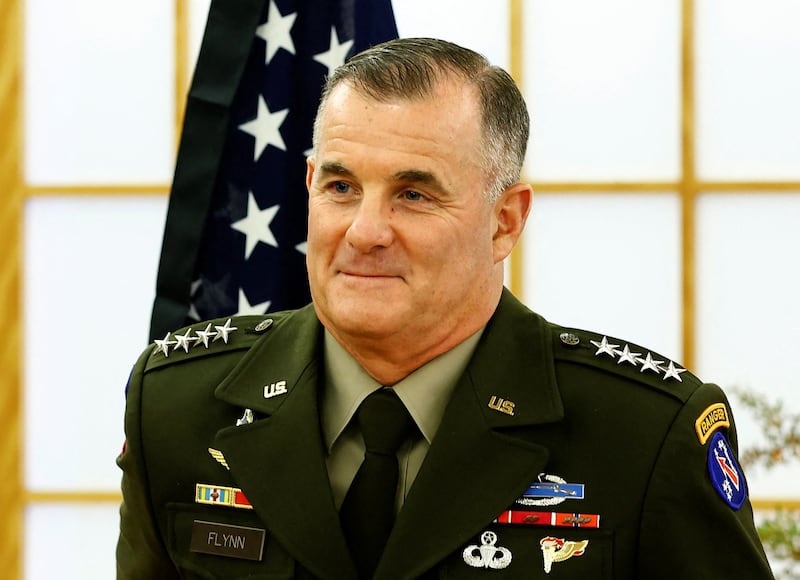The U.S. military’s purported plan to station intermediate-range missiles in Guam is likely to heighten concerns among some Pacific island countries of a new era of militarization of their region, analysts said.
The United States withdrew from a decades-old treaty with Russia in 2019 that prohibited use of ground-launched missiles with a range of 500-5,500 kilometers – a decision that potentially gives the U.S. more flexibility to respond to China’s increased military strength, but also faces practical resistance from its allies in Asia.
Gen. Charles Flynn, commanding general for U.S. Army Pacific, told an international security forum in mid-November that the U.S. intends to deploy HIMARS, SM-6s, and Tomahawk missiles into the “Indo Pacific” – the U.S. term for an area spanning East Asia and the Indian and Pacific Oceans.
“We intend to deploy that system into the region. I’m not going to say where or when,” Flynn said at the Halifax Security Forum, according to an emailed statement Tuesday from the U.S. Army.
The plans were highlighted by a Nikkei report on Dec. 3, which citing a U.S. army spokesman, said the deployment would occur in 2024. Reports by Rand Corporation and Carnegie Endowment for International Peace – U.S. think tanks – say the American territory of Guam in the Pacific is the most likely location because of the reluctance of U.S. allies in Asia to host the missile systems.
Competition between China and the U.S. has been sharpest in East Asia due to possible flashpoints such as Taiwan – which China regards as a rebel province – and Beijing's claims to the South China Sea that overlap with the claims of Southeast Asian nations.
Because of the intermediate-range forces treaty with Russia, the U.S. had previously faced a “structural constraint” on its military power in Asia, according to a report in October by Carnegie Endowment analyst Ankit Panda, while China did not.

The Pacific has also become a focus for the rivalry as the U.S. responds to China's inroads with island states that were neglected by Washington over recent decades. U.S. interest in the Pacific was particularly galvanized after the Solomon Islands signed a security agreement with China early last year.
Tess Newton Cain, a Pacific analyst at Griffith Asia Institute, said the possibility of intermediate-range missiles in Guam is exactly an example of the militarization that some Pacific nations have been concerned about happening in their neighborhood.
The Pacific Islands Forum, a grouping of 18 nations that includes Australia and New Zealand, has already been concerned about the U.S. not accepting the principles of the 1989 Treaty of Rarotonga, which declared the South Pacific a nuclear-free zone, she said.
Australia's increased closeness to the U.S, particularly via the AUKUS pact to equip Australia with nuclear-powered submarines, also has raised questions about its commitment to a nuclear-free region, Newton Cain said.
At their summit in November, leaders of the Pacific Islands Forum nations said they had welcomed a proposal from Fiji's Prime Minister Sitiveni Rabuka for the Pacific to be a zone of peace.
“This moment is an opportunity for us islanders of the Pacific to shape a common destiny built around peace,” Rabuka said, according to the island forum’s statement.
Henryk Szadziewski, a researcher at the University of Hawaii’s Center for Pacific Island Studies, said the zone of peace proposal was a “clear statement to redirect energies from a traditional security build up towards the non-traditional security concerns of livelihoods.”
“Civil society in Guam has been equally vocal about their land becoming a target due to the extensive U.S. military presence,” he said.
However, leaders of North Pacific island nations that have close security and economic ties to the U.S. through compacts of free association have tended to be more concerned about a “China threat,” Szadziewski said.
Palau's President Surangel Whipps said in October he wants the U.S. to station Patriot air-defense missiles in his nation so it has the same protection from attack as Guam.
The U.S. is also building an over-the-horizon radar facility in Palau.
BenarNews is an RFA-affiliated online news organization.
